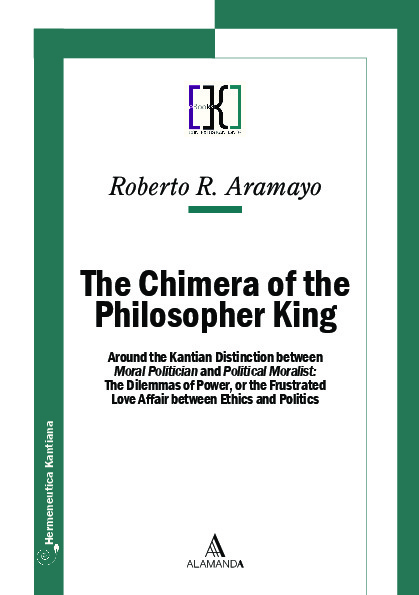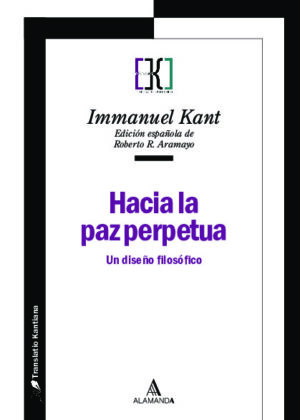
The chimera of the philosopher…
Autor: Roberto Rodríguez Aramayo
ISBN: 9788494943638
Editorial: Ediciones Alamanda
Género:
IBIC: HPQ Ética y filosofía moral
$324.54 MXN
Taking the Kantian distinction between a moral politician and a political moralist as a point of departure and as a clue to the structure of the present book, we are offered the chronicle of something very much like a sentimental failure: that of the love affair between ethics and politics, which Plato dreamed of. For him, turning philosophers into kings, thereby moralizing politics, meant the panacea that would enable us to exorcize all sorts of corruptions, which seem to be inherent to power. Already Machiavelli, however, considered such a Platonic dream a chimera, drawing a sharp contrast, even a radical antagonism, between both realms. The dilemma between the reason of state and the moral criteria is very well exemplified by Frederick the Great, the enlightened monarch who gave so much hope to an intellectual such as Voltaire, who eventually became profoundly disappointed in the author of the Anti-Machiavelli. Perhaps that is the reason why Kant contented himself with demanding that moral philosophers gave advice to politicians, as he realized that it was impossible to simultaneously fulfill both professions; a diagnostic which Max Weber later confirmed. This journey through the history of moral and political ideas concludes with the analysis of an Indian political treatise, Kautilya’s Arthasastra, which allows us to verify that the expedients of politics are as ancient as the rules of chess.
Descripción
Taking the Kantian distinction between a moral politician and a political moralist as a point of departure and as a clue to the structure of the present book, we are offered the chronicle of something very much like a sentimental failure: that of the love affair between ethics and politics, which Plato dreamed of. For him, turning philosophers into kings, thereby moralizing politics, meant the panacea that would enable us to exorcize all sorts of corruptions, which seem to be inherent to power. Already Machiavelli, however, considered such a Platonic dream a chimera, drawing a sharp contrast, even a radical antagonism, between both realms. The dilemma between the reason of state and the moral criteria is very well exemplified by Frederick the Great, the enlightened monarch who gave so much hope to an intellectual such as Voltaire, who eventually became profoundly disappointed in the author of the Anti-Machiavelli. Perhaps that is the reason why Kant contented himself with demanding that moral philosophers gave advice to politicians, as he realized that it was impossible to simultaneously fulfill both professions; a diagnostic which Max Weber later confirmed. This journey through the history of moral and political ideas concludes with the analysis of an Indian political treatise, Kautilya’s Arthasastra, which allows us to verify that the expedients of politics are as ancient as the rules of chess.





Valoraciones
No hay valoraciones aún.